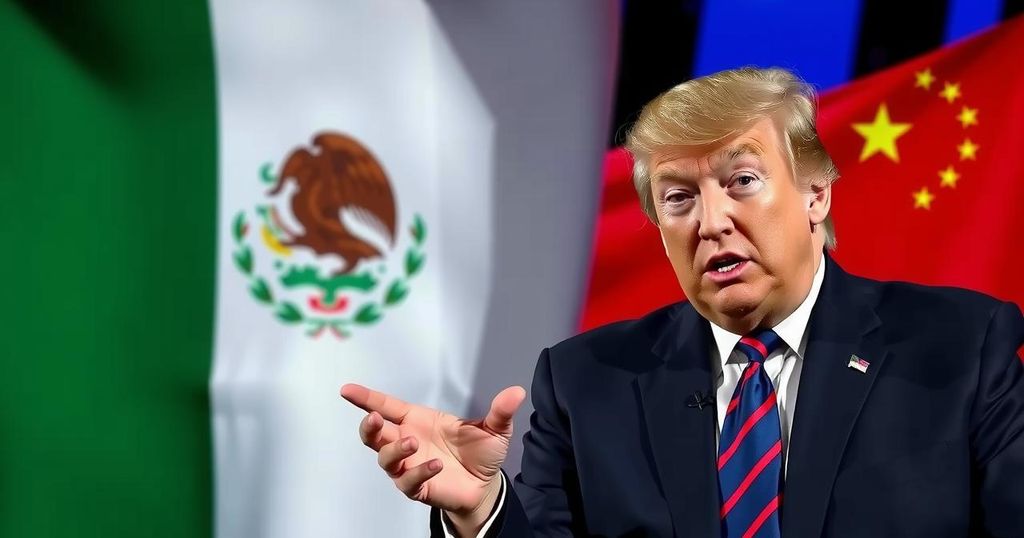Trump Proposes Significant Tariffs on Imports from Mexico, Canada, and China

President-elect Donald Trump has pledged to impose significant tariffs on imports from Mexico, Canada, and China, citing illegal drug trade and immigration as key reasons. He announced a 25% tariff on goods from Mexico and Canada and a 10% tariff on Chinese imports. These tariffs are part of his broader economic agenda, reminiscent of his previous trade policies. However, experts warn of potential negative impacts on economic growth and inflation.
In a bold declaration, President-elect Donald Trump announced his plan to impose significant tariffs on goods imported from Mexico, Canada, and China. Through numerous posts on his Truth Social account, Trump expressed his intent to levy a 25% tariff on all products arriving in the United States from Mexico and Canada, highlighting the issues of drug trafficking and immigration as primary motivations. Furthermore, he stated a 10% tariff will be applied to all imports from China, aimed at addressing the ongoing fentanyl crisis attributed to smuggling activities. Such measures reflect Trump’s strong stance on trade, reminiscent of his previous aggressive trade policies during his earlier term, which also involved contentious tariffs on Chinese products and led to retaliatory actions from affected countries. Experts suggest that while such tariffs may serve as leverage in negotiations, they could adversely affect economic growth and consumer prices as costs are likely to be passed on to consumers.
President-elect Trump’s tariff proposals are situated within a context of longstanding issues related to international trade, particularly between the United States and its primary trading partners: Mexico, Canada, and China. Trump’s previous administration was marked by a trade war with China, characterized by heavy tariffs and retaliations, fundamentally aimed at addressing trade imbalances and protecting American manufacturing jobs. The proposed tariffs coincide with the need to tackle drug trafficking and immigration concerns, as Trump links these issues to national security. The ongoing discourse surrounding tariffs raises critical questions about their impact on inflation, economic growth, and international relations, requiring a nuanced understanding of global trade dynamics and regulations set forth by institutions like the World Trade Organization.
In summary, President-elect Trump’s vow to impose substantial tariffs on goods from Mexico, Canada, and China presents a continuation of his protectionist trade agenda. By framing these tariffs within the context of national security concerns, he creates a compelling justification for such measures. However, the potential economic implications for consumers and trading partners remain a subject of considerable debate. Observers will be watching Traump’s administration closely as it navigates these complex trade relationships and policies.
Original Source: jordantimes.com








